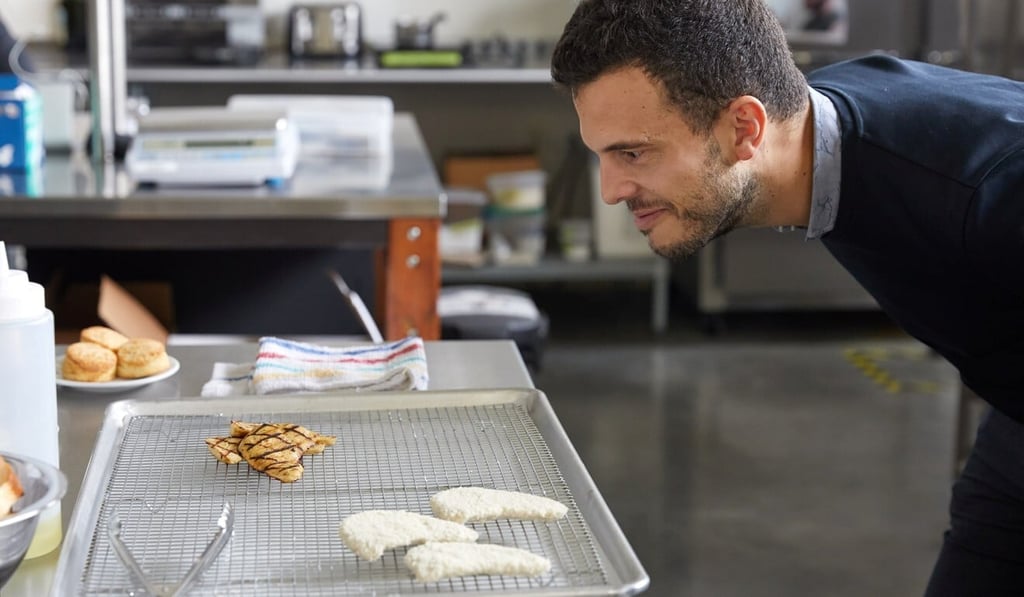Advertisement
Will Singapore approval for Li Ka-shing backed Eat Just’s lab-grown meat open floodgates for sector in Asia?
- The approval for Eat Just’s chicken bites makes everything real, says co-founder of Hong Kong’s first lab-grown meat start-up
- Covid-19 accelerated growth in market for meat alternatives in Asia-Pacific in 2020: Euromonitor International
Reading Time:3 minutes
Why you can trust SCMP

Start-ups and investors in the lab-grown meat segment received a massive boost last month when Singapore approved San Francisco-based Eat Just’s cell-based chicken bites.
1880, a members only restaurant in downtown Singapore, became the first eatery in the world to serve Eat Just’s lab-grown meat last week, a development that industry players hope will lead to more jurisdictions allowing the sale of such meat products as early as 2021.
Among them is Carrie Chan Kai-yi, the co-founder of Avant Meats, Hong Kong’s first lab-grown meat start-up. Chan had expected the first regulatory approvals in 2022.
Advertisement
“This is exciting news for all of us, from start-ups to investors. We have developed and invested in something that was previously not allowed to be sold. The [Eat Just] approval makes everything real,” she said.

Advertisement
The nod for Eat Just’s cell-based chicken bites is significant because cultured meat and meat substitutes are expected to disrupt the multibillion-dollar global meat industry over the coming decades.
Advertisement
Select Voice
Select Speed
1.00x